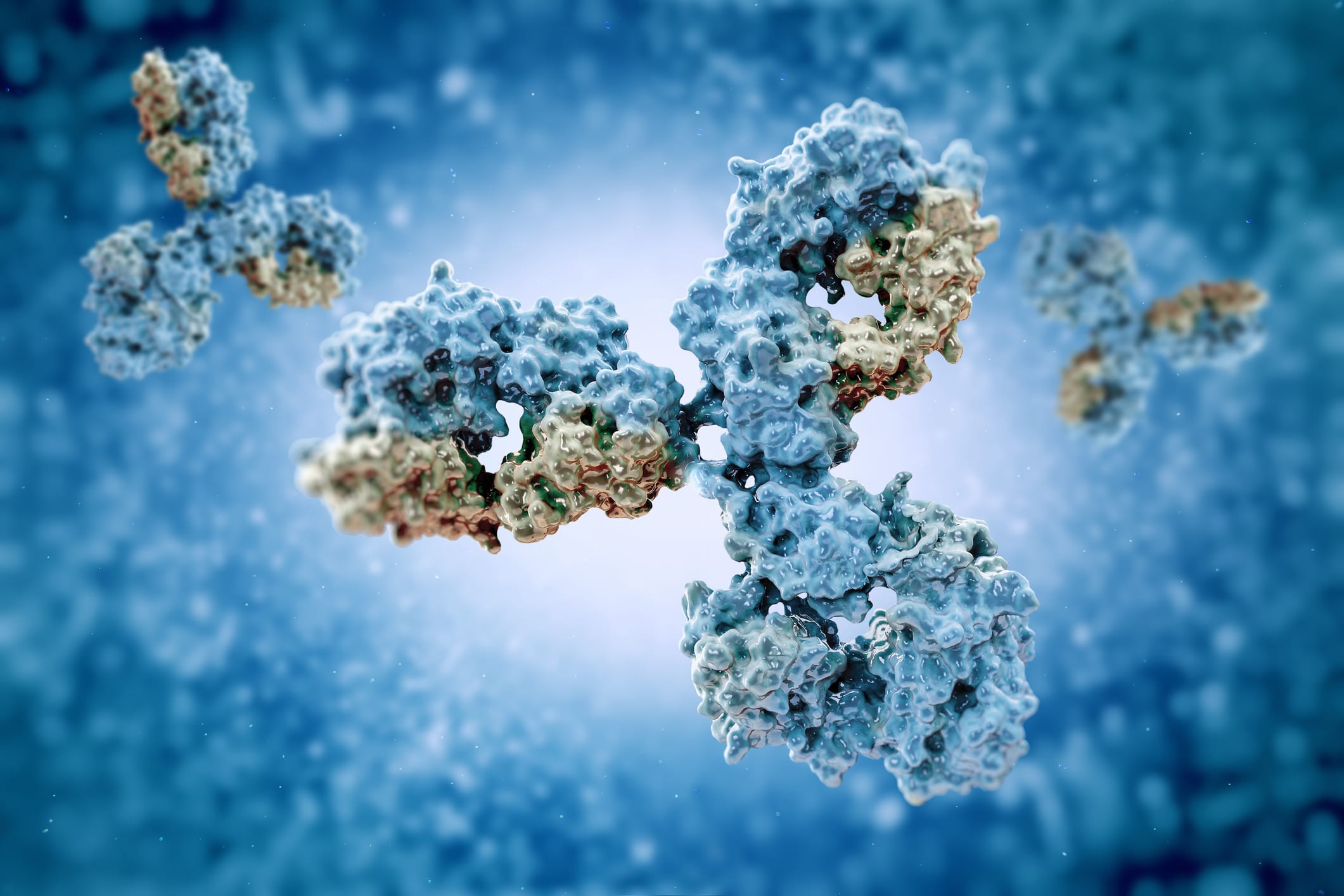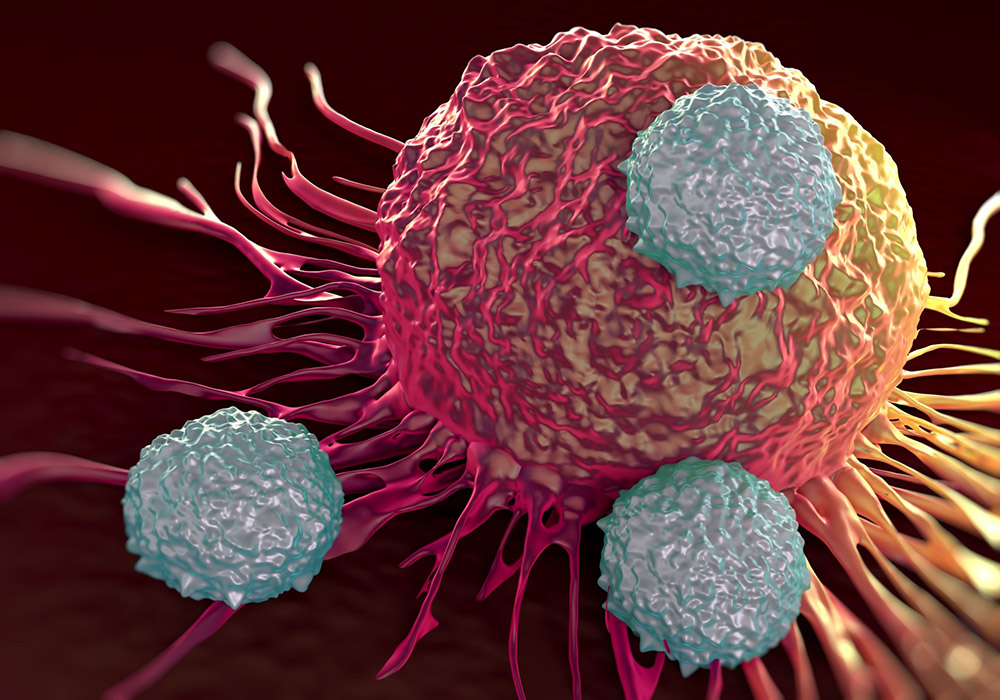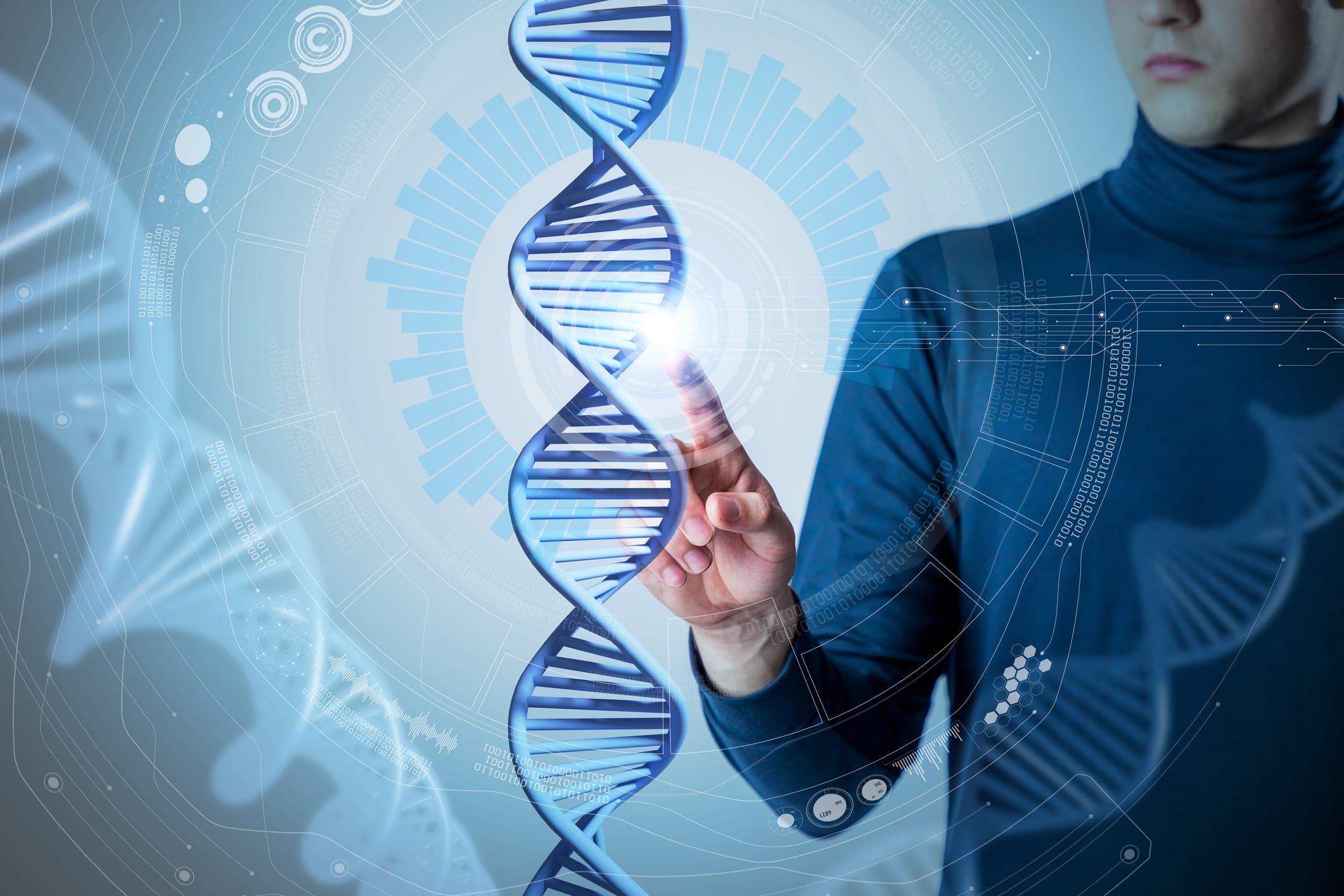CHULALONGKORN CANCER IMMUNOTHERAPY EXCELLENCE CENTER
CANCER IMMUNOTHERAPY
From basic science to bedside
Faculty of Medicine, Chulalongkorn University and King Chulalongkorn Memorial Hospital, the Thai Red Cross Society
Head: Prof. Nattiya Hirankarn, MD, PhD
Immunology Unit, Department of Microbiology
Faculty of Medicine, Chulalongkorn University

BACKGROUND & OBJECTIVES
Faculty of Medicine, Chulalongkorn University and King Chulalongkorn Memorial Hospital, The Thai Red Cross Society have expertise in training, servicing and researching in all scientific and clinical areas of cancer. We have established Chula Comprehensive Cancer Center and joined the MD Anderson Cancer Center Sister Institution Network. This collaboration provides us a great opportunity to strengthen our research to provide early detection and advance care to our cancer patients.
Cancer is the number one cause of death globally. The mortality rate of cancer is increasing every year as a result of aging society around the world. Despite the advance in diagnostic and drug development, there are still a large number of cancer patients with advance stages and relapses that do not respond to any standard treatment available. The idea of using our own immune response to combat cancer, so-called “cancer immunotherapy”, has been around for a long time but had not have much success. However, recently there are 2 breakthrough discoveries that make cancer immunotherapy feasible and currently this treatment strategy is the only hope for some patients. The first discovery is the use of a monoclonal antibody treatment called “checkpoint inhibitor” to release the break that the cancer cells use to inhibit immune responses. These antibodies were granted several breakthrough and high priority approval for uses in various cancers by the US FDA. The second exciting discovery is a state-of-the-art treatment using the combined idea of gene therapy and cell therapy. This treatment employs a genetic engineered T cell called “CAR-T cell” i.e. the T cell that expresses a hybrid T cell receptor (TCR) molecule in which the outside part of TCR is replaced by a small fragment of antibody. This chimeric receptor allows the T cells to recognize a specific antigen on tumor cells. When the CAR-T cell binds its target, an intracellular signaling domain activates the T cell to kill the target cell. A common procedure for CAR-T cell therapy involves the isolation of T-cells from the patient, which are then genetically modified and expanded in the laboratory unit.
These engineered CAR T cells are then reinfused into the patient, aiming to multiply, recognize and kill tumor cells. This technology is very exciting because it offers an opportunity to relapsed leukemia patients who do not have other options and the infusion of only 1 time can cure >85% of these final stage cancer patients. The first product from Novartis (CTL019) was just approved by the US FDA to treat relapsed or refractory pediatric and young adult patients with B-cell acute lymphoblastic leukemia (ALL) on July 12th, 2017. There is an urgent need for us to make these therapies available to Thai patients. The checkpoint inhibitor antibody is available commercially but the cost is too expensive (~ 8 million THB/case) and it is not covered by the national health policy. The CD19 CAR T cells are not commercial available yet. The estimated cost in the US is very high ~ 500,000 USD/case.
Therefore, we have set up the new cancer immunotherapy excellence center at Chulalongkorn University with support from the university and King Chulalongkorn Memorial hospital to conduct research and development in these innovative treatments.
Research Focus Areas
I. THERAPEUTIC ANTIBODY RESEARCH AND DEVELOPMENT
In 2016, five of the top 20 pharmaceuticals (in terms of prescription dollars) were therapeutic antibody drugs, with combined sales exceeding $20 billion. To date, more than thirty therapeutic antibodies have been marketed, mostly as oncology, autoimmune and inflammatory therapeutics. Therapeutic antibodies are very efficient and produce fewer side-effects compared to traditional chemotherapeutic or immunosuppressive agents. Antibodies are also the main component in every immunoassay used over the broad-range of diagnostic tests. Development of high-quality monoclonal antibodies is at the heart of these important medical applications.
Currently, no therapeutic antibodies and only a few diagnostic antibodies have been developed and produced in Thailand. As a consequence, Thai patients have very limited access to these new and effective therapeutic antibodies and need to pay an exceptionally high cost for this kind of treatment. By the same token, clinical laboratories in Thailand mainly utilize imported immunoassay kits from other countries. As a result, it has been estimated that the economic impact of medical antibodies will be on a scale of multi-billions of baht within the next decade, resulting in a huge deficit for Thailand if we cannot catch up with global and regional competitors (e.g., Vietnam and Indonesia). Therefore, it is absolutely essential to accelerate development of our research and innovation in monoclonal antibody technologies, thereby boosting the competitiveness of Thailand in biopharmaceutical and immunodiagnostic industries. The research and technological innovation generated by this international research network is expected to stimulate foreign investments, exportation of high-value products, high-value clinical research, creation of high-technology jobs, health security, and sustainable development in every dimension of the antibody biotech industry.
Our research network is composed of interdisciplinary experts in antibody research and development, with strong infrastructure and support from public and private entities. Importantly, the Thai biopharmaceutical partner in this network will provide essential input for the design and production of antibody drugs that can gain approval by regulatory agencies both in Thailand and abroad. Moreover, a tight connection with clinicians and clinical diagnostic laboratories in our network will ultimately translate into real impact and usage of the products.

Principle Investigators
• Dr. Trairak Pisitkun, MD, Director of CU Systems Biology Center, Division of Research Affairs, Faculty of Medicine
Chulalongkorn University
• Dr. Michael Payne, PhD, Senior Scientist, CU Systems Biology Center, Division of Research Affairs, Faculty of Medicine
Chulalongkorn University
• Prof. Nattiya Hirankarn, MD, PhD, Immunology Unit, Department of Microbiology, Faculty of Medicine, Chulalongkorn University
Local Collaborator
• Prof. Montarop Yamabhai, PhD, Professor and Chair of Biotechnology, Institute of Agricultural Technology,
Suranaree University of Technology
International Advisory team
• Prof. Albert B. Reynolds, Executive Director, Vanderbilt Antibody and Protein Resource (VAPR) Center and Department of Cancer Biology, Vanderbilt Ingram Cancer Center, Vanderbilt University, USA
• Assoc. Prof. Robert Carnahan, Director, Vanderbilt Antibody and Protein Resource (VAPR) Center and Department of Cancer Biology, Vanderbilt Ingram Cancer Center, Vanderbilt University, USA
• Dr. Oranee T. Daniels, Chief Medical Officer, Antiva Biosciences, San Francisco, CA, USA
II. CANCER CELLULAR IMMUNOTHERAPY GROUP
T cells are a type of white blood cells that play a major role in destroying abnormal cells of the body. These abnormal cells can be either infected cells or cancer cells. When immunity mediated by T cells are dwindled as seen in patients with HIV/AIDS and organ or bone marrow transplant recipients, risks of having unusual infections and cancers clearly increase. Although not all cancers are associated with immune defects, transfer of cancer-targeting T cells or immune-enhancing agents can treat many cancers both in animal models and real patients.
How do T cells kill cancer cells? A kiss of death
There are billions of T cells circulating around the body to guard their home from being attacked by germs and cancers. These immune cells are blind to our normal cells but are ready to attack unhealthy ones whenever they come across foreign proteins displayed on abnormal cell surface. T cells have a protein called T-cell receptor or TCR which binds specifically to the foreign protein. Upon a kissing of TCR and foreign protein, T cells will kill the infected cells or cancer cells with their weapons. Transfer of quality-enhanced T cells to the patients, in theory, can kill both virally-infected cells and tumor cells.
A number of patients who have immunosuppressive treatment after bone marrow or organ transplantation develop lymphoma due to defects in T-cell mediated immunity. Several studies have shown that lymphoma-specific T-cell transfer could either prevent or treat this post-transplant lymphoma in bone marrow or organ recipients. Lymphoma cells of this particular type are almost always associated with a virus called EBV (Epstein-Barr virus), which make these cells vulnerable to be killed by EBV-specific T cells. Our group at Faculty of Medicine, Chulalongkorn University and King Chulalongkorn Memorial Hospital has been working on cancers which are related to EBV infection for more than 10 years. We have developed techniques to assess functions of EBV-specific T cells in patients suffering from EBV-associated cancers. We have also established techniques to grow T cells for immunotherapy in cancer patients. We have transfused T cells into 7 patients who had no other therapeutic options resulting in striking decrease of tumor marker in a few patients.
In a pipeline, our group become interested in exploring CAR-T cells as therapeutic options for leukemia and other solid tumors. Our expertise in T-cell Biology, gene-editing technologies including Crispr/Cas9 system and clean-room facilities, we are heading to Phase I clinical trials of T-cell therapy within a few years. The primary goal of our research unit is to develop a CAR T cell production with GMP certified standard to serve cancer patients in Thailand. The current works include establishing investigational CAR-CD19 T cell therapy for hematologic malignancies in collaboration with Baylor College of Medicine. We also focusing on expanding CAR T cell research in solid tumors unique to South-East Asia such as cholangiocarcinoma, clear cell carcinoma, and retinoblastoma. Our future directions include developing next-generation CARs targeting novel tumor antigens derived from Thai patients and modifying CAR-T cells from induced pluripotent stem cells (iPSc) as cellular therapy for cancer treatment.

Principle Investigators
• Dr. Pokrath Hansasuta, MD, DPhil(Oxon), Head of Virology Unit, Department of Microbiology, Faculty of Medicine, Chulalongkorn University
• Dr. Udomsak Bunworasate, MD, American Board of Hematology and Medical Oncology, Department of Medicine, Chulalongkorn University
• Dr. Koramit Suppipat, MD, American Board of Pediatrics Hematolgy-Oncology, Stem Cell and Cell Therapy Center, Faculty of Medicine, Chulalongkorn University
• Dr. Supannikar Tawinwung, PhD, Department of Pharmacology and Physiology, Faculty of Pharmaceutical Sciences, Chulalongkorn University
International Advisory team
• Professor Richard M Childs, Clinical Director, NHLBI, NIH, Bethesda, Maryland, USA
• Professor Sarah Rowland-Jones, University of Oxford, Oxford, United Kingdom
• Professor Tao Dong, University of Oxford, Oxford, United Kingdom
• Professor Xiao-ning Xu, Universilty of London, United Kingdom
• Associate Professor Ann M. Leen, Center for Cell and Gene Therapy, Baylor College of Medicine
• Associate Professor Juan F. Vera, Center for Cell and Gene Therapy, Baylor College of Medicine
III. CANCER NEOANTIGEN AND CANCER VACCINE
Background and Rationale
Development of most adult cancers is initiated by genetic and/or epigenetic alterations in so-called “gatekeeper” genes. As just one model example, over 80% of all human colorectal cancers (CRC) are triggered by inactivation of a specific tumor suppressor gene (Adenomatous Polyposis Coli (APC)) in an intestinal stem cell (1). Over time, benign tumors arising from functional loss of both APC alleles then progress to malignancy by a Darwinian process of clonal cellular evolution involving accumulation of additional mutations in other key genes. Early studies highlighted the subsequent involvement of several additional so-called “driver” genes that are frequently mutated during progression to malignancy, including K-Ras, SMAD4, and p53. However, recent evidence from whole genome sequencing (WGS) of tumors has revealed an additional layer of complexity in the form of a much larger number of less-frequently mutated genes, many of which qualify as statistically significant drivers of tumor progression. In one such study, 128 different mutations were found to be distributed across different regions of a single tumor. This unexpected level of tumor heterogeneity likely explains one of the major complications associated with current approaches to personalized cancer therapy, namely, the common recurrence of tumors following treatment.
It has long been hypothesized that the immune system should be able to recognize and eliminate tumors. Unfortunately, after decades of attempts at cancer immunotherapy, the results have been extremely disappointing, leading to speculation that the immune system might not even play a role in controlling tumors at all. On the contrary, however, recent advances in understanding immune function at the molecular level have definitively confirmed the original hypothesis [reviewed in (3)]: the immune system can indeed both suppress tumor growth and destroy the tumor itself. Certain components of the immune system may also actually promote the evolution tumors that can exploit the immune surveillance system to ultimately escape detection. For example, immune checkpoints (mediated by proteins including PD-1 and CTLA-4) play an important role in down-regulating T-cell activation, which in turn reduces autoimmunity and promotes self-tolerance. Tumors frequently activate these immune checkpoints to suppress attack from the immune system. Indeed, recent therapies using checkpoint inhibitors have shown great promise in restoring the ability of the immune system to attack and destroy several types of cancer. Despite this success, long-term use of such checkpoint inhibitors might be expected to eventually lead to increased autoimmune reactions as a side effect.
As described above, the very high level of mutational heterogeneity among tumors — and even within the same tumor — represents a major obstacle for “conventional” approaches to personalized cancer therapy. However, this same heterogeneity also serves as a major advantage for a personalized cancer immunotherapy approach that is targeted to the mutations themselves, since it actually provides a large pool of potential targets for the immune system to attack. These mutations (so-called “neo-epitopes” or “neo-antigens”) should be recognized as “non-self” and attacked by the immune system, but tumors have evolved mechanisms for suppressing such attack (see above), essentially “hiding” these neo-antigens from the immune system and thereby evading detection. Over the past 4 years, a novel approach has been explored for “awakening” the immune system to the presence of these neo-antigens, involving a personalized cancer vaccine (using peptides or RNA) simultaneously directed at multiple neo-antigens present in individual tumors. Based on the extremely encouraging results from these early studies, several phase 1 clinical trials are currently being conducted.
Collectively, the conclusion from the results with both immune checkpoint inhibitors and personalized cancer vaccines against neo-antigens is that restoring immune homeostasis is sufficient to cure cancer. Especially for the personalized cancer vaccine strategy, the new vaccination methods and the ability to identify a large array of valid neo-antigens provides the tools to put the immune system back in control.
The novel personalized cancer vaccine (or “just in time” vaccine) approach involves multiple steps: (i) identification of all non-synonymous mutations in the tumor (relative to normal tissue) by sequencing DNA (whole genome or exome sequencing) and RNA (RNA-seq to determine relative expression levels for each mutation); (ii) prediction of MHC class I and class II binding efficiencies for mutations using computational tools; (iii) prioritization of the mutations based on expression level and prediction of MHC presentation efficiency; (iv) validation of neo-antigen MHC binding and immunogenicity using multiple high-throughput assays; and (v) therapeutic tumor-specific neo-antigen (TSNA) vaccination using vaccines comprised of either multiple peptide neo-antigens or synthetic RNA (encoding multiple peptide neo-antigens).
There are limitations and problems with each of the steps outlined above. For example, even though DNA and RNA sequencing costs are declining relatively rapidly, these procedures are still expensive. Furthermore, the computational tools currently available for predicting MHC binding are not very accurate. The goal of the research proposed here is to improve the personalized cancer vaccine approach by eliminating some of these limitations. First, we propose to ultimately by-pass the need for DNA/RNA sequencing by rapidly identifying non-synonymous mutations from tumors using a mass spectrometry-based proteomics approach combined with a novel de novo sequencing algorithm. Second, we will attempt to systematically improve the computational tools for predicting and prioritizing neo-antigens with optimal immunogenicity potential using a combination of results from experimental analyses coupled with machine learning techniques. Finally, the efficacy of our novel strategy and computational tools will be assessed by administration of a personalized cancer vaccine to a group of advanced-stage cancer patients in a phase-I clinical study.

Principle Investigators
• Dr. Trairak Pisitkun, MD, Director of CU Systems Biology Center, Division of Research Affairs, Faculty of Medicine
Chulalongkorn University
• Dr. Virote Sriuranpong, MD, PhD, Head of Oncology Unit, Department of Medicine, Faculty of Medicine, Chulalongkorn University
• Dr. Chanida Vinayanuwattikun, MD, PhD, Oncology Unit, Department of Medicine, Faculty of Medicine, Chulalongkorn University
• Dr. Chucheep Sahakitrungruang, MD, Department of Surgery, Faculty of Medicine, Chulalongkorn University
• Dr. Wichai Termrungruanglert, MD, Department of obstetrics and gynecology, Faculty of Medicine, Chulalongkorn University
• Dr. Patcharee Ritprajak, DDS, PhD, Department of Microbiology, Faculty of Dentistry, Chulalongkorn University
• Dr. Rangsima Reantragoon, MD, PhD, Department of Microbiology, Faculty of Medicine, Chulalongkorn University
• Dr. Pimpayao Sodsai, PhD, Department of Microbiology, Faculty of Medicine, Chulalongkorn University
• Dr. Tanapat Palaga, PhD, Department of Microbiology, Faculty of Sciences, Chulalongkorn University
• Dr. Eakachai Prompetchara, PhD, Department of Biochemistry and Microbiology,Faculty of Pharmaceutical Sciences,Chulalongkorn University
• Dr. Shuichi Shiratori, PhD, Department of Radiology, Faculty of Medicine, Chulalongkorn University
• Dr. Naphat Chantaravisoot, PhD, Department of Biochemistry, Faculty of Medicine, Chulalongkorn University
International Advisory team
• Asst. Prof. Joshua Elias, PhD Stanford University Email: josh.elias@stanford.edu
• Assoc. Prof Nam-Joon Cho, School of Materials Science & Engineering, College of Engineering, Nanyang Technological University, Singapore

